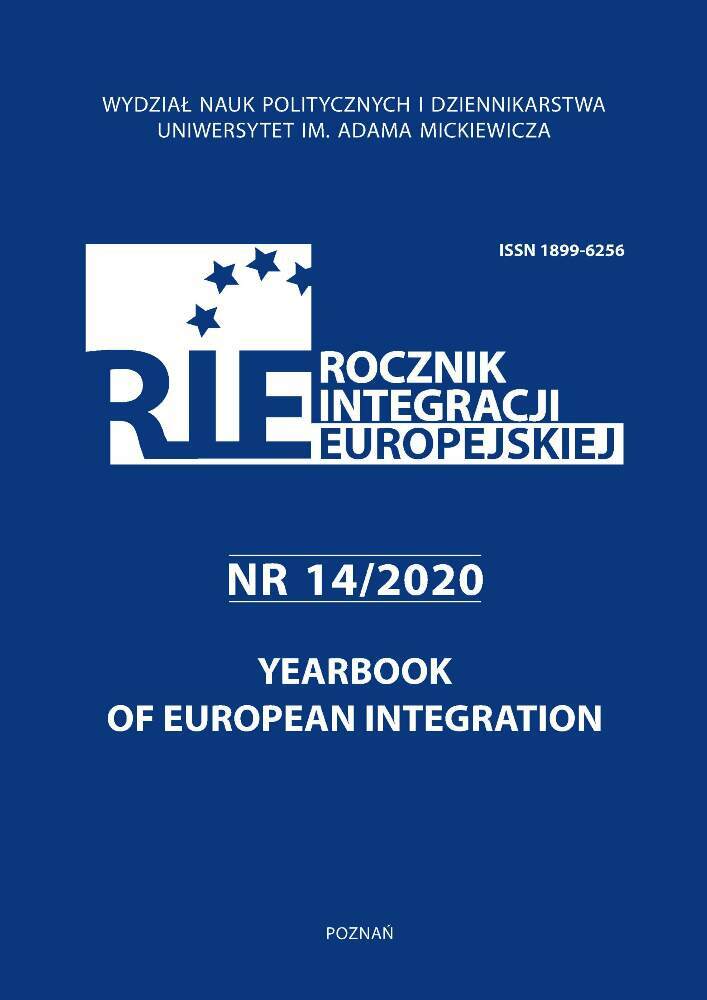Abstract
In the article, through a comparative analysis of the discourse related to the description of economic free market processes and discourses related to cultural processes, we are looking for a research perspective that allows to examine the mutual influence of these cultural processes.
If we analyze the descriptions of socio-economic changes in countries such as Poland or the Baltic countries, it turns out that their path to increase economic competitiveness is similar. It is associated with market changes but also a cultural change in a broader context.
Thus, one can hypothesize: the individual is free in the world of thought, however, in the world of phenomena, freedom does not exist. This hypothesis developed for societies that introduced a free market would be: the individual in the consumer society is free in the world of his thoughts but in the world of market phenomena he is subject to independent processes.
References
Aldridge A. (2006), Rynek, Sic!, Warsaw.
Bauman Z. (2000), Globalizacja, Państwowy Instytut Wydawniczy, Warsaw.
Bauman Z. (2009), Konsumowanie życia, przeł. Monika Wyrwas-Wiśniewska, Wydawnictwo Uniwersytetu Jagiellońskiego, Cracow.
Bauman Z. (2005), Konsumując życie, w: Konsumpcja – istotny wymiar globalizacji kulturowej, pod red. A. Jawłowskiej, M. Kempnego, Wydawnictwo IFiS PAN, Warsaw.
Bauman Z. (2007), Szanse etyki w zglobalizowanym świecie, Wydawnictwo Znak, Cracow.
Belch G., Belch M. (2011), Advertising and Promotion: An Integrated Marketing Communications Perspective, McGraw Hill, New York.
Bell D. (1998), Kulturowe sprzeczności kapitalizmu, PWN, Warsaw.
Berger P. L., Luckmann T. (1983), Społeczne tworzenia rzeczywistości, PIW, Warsaw.
Black J. (2008), Słownik ekonomii, PWN, Warszawa.
Cyrson E. (1981), Korporacje międzynarodowe. Prawidłowości ekspansji zagranicznej, Warsaw.
Fromm E. (2003), Mieć czy być?, przeł. J. Karłowski, Dom Wydawniczy Rebis, Poznań.
Giddens A. (1999), Trzecia droga. Odnowa socjaldemokracji, Książka i Wiedza, Warsaw.
Hołub J., Perenc J., Rosa G. (1997), Podstawy marketingu, WN US, Szczecin.
Koima K. (1985), Toward a Theory of Industrial Restructuring and Dynamic Comparative Advantage, “Hitosubashi Jurnal of Economics”, no. 269.
Ostrowska I., Gracz L. (2013), Młodzi nabywcy na e-zakupach, Agencja Wydawnicza Placet, Warsaw.
Podstawy marketingu (1998), pod red. J. Karwowskiego, Wyd. ZSB, Szczecin.
Porter M. (1990), The Competitive Advantage of Nations, London.
Porter M. E. (2001), Porter o konkurencji, PWE, Warsaw.
Runiewicz M. (2006), Międzynarodowa konkurencyjność państw nadbałtyckich, Wyższa Szkoła Przedsiębiorczości i Zarządzania, Warsaw.
Schor J. B. (1999), The Overspent American, Why We Want What We Don’t Need, Harper Perennial, New York.
Słownik ekonomii (2008), Wydawnictwo Naukowe PWN, Warsaw.
Szlendak T. (2004), Supermarketyzacja. Religia i obyczaje seksualne młodzieży w kulturze konsumpcyjnej, Wydawnictwo Uniwersytetu Wrocławskiego Sp. z o.o., Wrocław.
Światowy G. (2006), Zachowania konsumentów. Determinanty oraz metody poznania i kształtowania, PWE, Warsaw.
The World Competitiveness Report 1994 (1994), World Economic Forum, Lausanne.
Woś J., Rachocka J., Kasperek-Hoppe M. (2004), Zachowania konsumentów – teoria i praktyka, Wydawnictwo Akademii Ekonomicznej w Poznaniu, Poznań.

